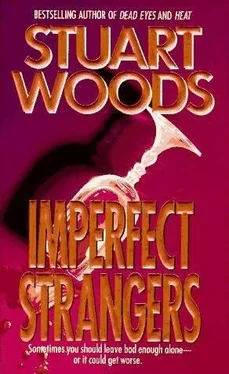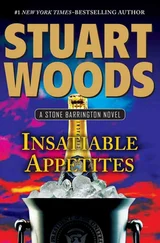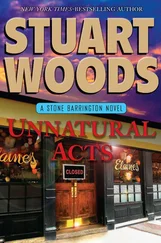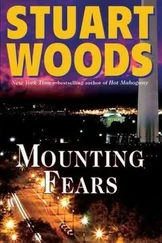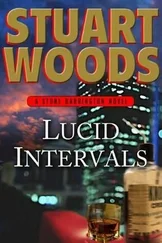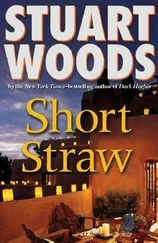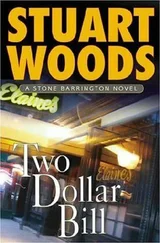"What is the value of the painting?" Keller asked.
"Larsen paid Martindale forty thousand dollars for it, and the dealer says the picture is now worth seventy-five."
"It would be, if it were genuine," Cara said.
"Ms. Mason, do you have some expertise in this field?"
"One of my degrees is in art history, and I was married to Peter Martindale, until recently. I worked in the gallery with him."
"In your opinion, is Mr. Martindale of such a moral makeup that he would perpetrate a fraud?"
"Indeed, yes."
"Would you testify to that effect in a court of law?"
"I would, if you think it would help."
The lawyer turned back to Sandy. "Mr. Kinsolving, what would you like to do about this?"
"As the current owner of the picture, I'd like to sue Martindale. Larsen has indicated he'd be happy to join me in the suit."
"Mmmm. The usual procedure would be for you to sue Larsen and Martindale, but if Larsen's willing, we could do it that way. What would you hope to accomplish in a lawsuit?"
"I want the current value of the painting, if it were genuine; I want Martindale to pay all of my legal bills in the suit."
"That seems reasonable, and, assuming we can get independent corroboration of the falsity of the painting, I believe we could accomplish that. In fact, I think we should be able to accomplish that in a settlement. Mr. Martindale has his reputation to think of, after all."
"I'm not much concerned about Mr. Martindale's reputation," Sandy said. "In fact, I think I would be performing a sort of public service if this incident became public knowledge."
Keller smiled slightly. "I suppose that in the normal course of events, the news might get out. Have you considered criminal fraud charges?"
"I don't want to send the man to jail. I think the spotlight of public attention on this incident would serve to teach him his lesson, not to mention the money it will cost him."
"Just as well," Keller said. "Unless we could establish that this is a common practice of Martindale's, the courts would rather see such a matter settled in a civil case."
"Will you represent me in this matter?" Sandy asked.
"I will be happy to. I own a number of pictures myself, and although I have never bought any from Mr. Martindale, I wouldn't like to see him get away with this. I will require a retainer of ten thousand dollars to proceed, and if we get it back from Martindale, I will, of course, refund your retainer."
"I'll have Sam Warren get you a check tomorrow," Sandy said. "How soon can we file suit?"
"I'd like to send an expert up to look at the picture and any documentation you have. Once he concurs in the painting's lack of authenticity, I'll file immediately. Shouldn't be more than a few days, I should think."
"What are our chances of achieving restitution?" Sandy asked.
"Does Mr. Martindale have any substantial assets?" the lawyer asked.
Cara spoke up. "He owns a large apartment, the gallery building, and a considerable stock of valuable pictures," she said. "I should know; I paid for most of it."
"Then our chances are very good," Keller said. "Where is the picture now?"
"In the main house at the vineyard," Sandy said, writing down the address."
"Is tomorrow too soon for my expert?"
"Not at all; we look forward to seeing him. By the way, the painter Saul Winner has said he'd be happy to testify."
"Does Mr. Winner have any axe to grind with Mr. Martindale?"
"I'm afraid so," Cara said.
"Well, let's stick to detached observers," Keller said.
"Can you ask your man to render an opinion on how good a forgery the picture is?" Cara asked. "It would be wonderful if he thought it so bad that no knowledgeable dealer could possibly mistake it for the real thing."
"A good point," Keller said, "and should we go to trial I would enjoy asking Mr. Martindale about his opinion of his own judgment. He is unlikely to want to destroy his own reputation in court, but then if he claims expertise, he makes himself out to be a con man."
Sandy and Cara laughed aloud.
"I want to be there to see that," Cara said.
Keller spoke up again. "I really do think you should consider what sort of a settlement you might accept from Martindale," he said. "He certainly won't want to go to trial."
"I'd accept what I've already told you," Sandy said, "plus a public admission that he deliberately sold a forgery, perhaps a nice ad in the San Francisco papers."
"He'd want confidentiality of the terms of a settlement," Keller said.
"I won't agree to that," Sandy replied.
Keller smiled. "You're a hard man, Mr. Kinsolving; one after my own heart."
Cara spread out the San Francisco Sunday papers on the bed. "This is wonderful," she said. "Listen." She read aloud. "'A bomb was detonated in the San Francisco art world last week when a lawsuit was filed against a prominent local art dealer, Peter Martindale, whose gallery specializes in nineteenth-century English paintings. The suit was brought by New York wine merchant and Napa Valley vineyard owner Alexander Kinsolving, who, when he bought the Larsen Vineyard, also acquired with the vineyard a painting, ostensibly an oil by John Wylie. The painting had been sold by Peter Martindale to the vineyard's previous owner, Lars Larsen, and, according to a certificate supplied with the picture, had been certified by Martindale as being a genuine Wylie.
"'After Kinsolving had bought the vineyard, a visitor to his property, the abstract painter, Saul Winner, saw the picture and proclaimed it a fake. Kinsolving then contacted San Francisco attorney Harry Keller who has long had the sobriquet Killer Keller, and Keller sent an independent expert, said to be an official of the San Francisco Museum, to Napa to view the painting. This expert, according to Keller, described the picture as a forgery, and not even a clever one.
"'Keller, interviewed in his office on Friday, said that his client would decline to settle out of court, unless Peter Martindale is willing to publicly admit that he deliberately sold a forgery.
"'Martindale, contacted at his gallery yesterday, said, "This gallery is in the business of dealing in fine paintings, genuine ones by eminent artists, and we would never stoop to such an action. I expect to be fully vindicated."
"'Keller, in response, said, "If Mr. Martindale wishes to have a swift opportunity to defend his reputation publicly, then my client and I will waive depositions and go straight to trial at the earliest possible moment. We have no interest in what Mr. Martindale has to say, unless it is in front of a judge and, if he likes, a jury"'"
Sandy laughed. "Keller has a way with him, doesn't he?" He held up another newspaper. "The New York Times has a piece, too, though a smaller one. The good news is it comes in an issue that has a feature on art galleries, so it will be widely read." The phone rang, and Sandy picked it up. "Hello?"
"Sandy? It's Saul Winner."
"Saul, you kept your promise; it's a perfect piece."
"Isn't it? Listen, a sculptor friend of mine, Martin Cage, is throwing what sounds like a very good party early this evening. Can I tempt you and Cara into town for it? I'd love to show you both off."
"Hang on." Sandy turned to Cara. "Saul wants us to go to a party this evening at Martin Cage's house. You up for it?"
"You bet I am," she replied.
"Saul, we'd love to." He wrote down the address. "See you sixish." He hung up.
"This," Cara said, "is going to be fun."
Martin Cage's house was on a low hill overlooking San Francisco Bay and the Golden Gate Bridge. Valet parkers sprinted to and from the street, disposing of the guests' cars, and waiters stood by the front door, dispensing drinks from trays. Cara took a glass of champagne and Sandy asked somebody to make him a bloody mary.
Читать дальше
